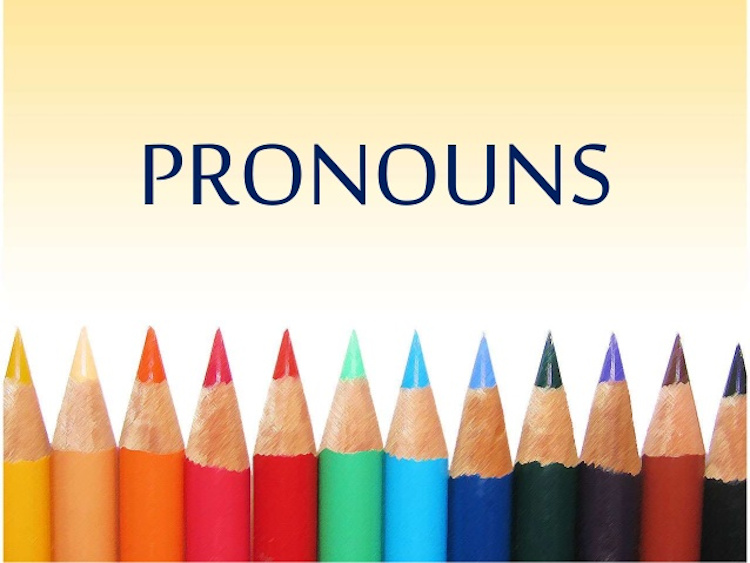Headlines
Between You And I/Between You And Me: Demystifying The Uses Of Personal Pronouns — Dr Ganiu Bamgbose

Personal pronouns are deployed to specifically refer to persons or things. They constitute the most difficult aspect of pronouns for both native speakers of English and second-language users because they exhibit certain features, one of which is their ‘cases’.
Three fundamental cases have been identified for personal pronouns thus:
The subjective (or nominative) case: I, we, you, he, she, it and they.
The objective case: me, us, you, him, her, it and them.
The possessive case: mine, ours, yours, his, hers, its and theirs.
Instructively, the choice of subjective or objective cases in sentences is not arbitrary. The inference, therefore, is that certain English rules dictate what choice can be made in different contexts, and this treatise throws light on such rules.
First and foremost, the subjective forms are used in the position of the subject, which is otherwise regarded as the performer of an action. This generates example sentences like:
1. Him changed one thousand naira for five two hundred (incorrect).
He changed one thousand naira for five two hundreds (correct).
2. You and me like singing (incorrect).
You and I like singing (correct).
READ: S’ In English Grammar —Dr Ganiu Abisoye Bamgbose
In those contexts, it is glaringly apparent that the personal pronouns are used in the doer positions; hence, the option of the subjective case. Following that, the subjective form is also used in the subject complement position. Subject complements are simply nouns or pronouns that refer to the subject, and they succeed linking verbs such as is, are, am, was, were and seem. This grammatical situation is convincingly exemplified below:
3. It was her (incorrect).
It was she (correct).
The general reader should note that although the first sentence sounds natural; is recommended by some descriptive grammarians and heard among native speakers — especially in informal settings — it flouts the rule of standard usage. In that connection, grammar purists (or prescriptive grammarians) often frown upon the former usage.
Personal pronouns
Consequentially, I would rather individuals aligned themselves with the standard usage while sitting standard examinations, as well as when conversing in formal settings. To further clarify this rule, it is noteworthy that the example sentences can be extended as:
It was her (who did it) = Her did it — incorrect.
It was she (who did it) = She did it — correct.
In a similar vein, these are obtainable:
- Handsomer Or More Handsome: Comparison Of Adjectives
- Idiomatic Expressions And Their Nigerian Variants
- Grammar And Domestic Issues
4. It is me who am the CEO of the multinational (incorrect).
It is I who am the CEO of the multinational (correct).
5. It was them who won the silverware (incorrect).
It was they who won the silverware (correct).
6. It was him who scaled the hurdles (incorrect).
It was he who scaled the hurdles (correct).
Contrariwise, the objective forms are used when the pronoun follows an action verb, as evidenced below:
7. She left we (incorrect).
She left us (correct).
8. Do you know he (incorrect)?
Do you know him (correct)?
9. Let we the students cooperate with the teachers (incorrect).
Let us the students cooperate with the teachers (correct).
10. Allow them to depart any minute now (correct).
The objective forms are also preferred after prepositions, which are words that indicate the relationship between two elements. Commonplace examples are in, at, on, of, between, beside, for and whatnot. Their occurrence with personal pronouns is illustrated in the following sentences:
11. Between you and I, this relationship cannot work (incorrect).
Between you and me, this relationship cannot work (correct).
12. John’s father put the blame on you and I (incorrect)
John’s father put the blame on you and me (correct).
13. It is impossible for you and I to travel to the Gambia (incorrect).
It is impossible for you and me to travel to the Gambia (correct).
14. She kept staring at he (incorrect).
She kept staring at him (correct).
15. According to she, the weather will be superb today (incorrect).
According to her, the weather will be superb today (correct).
Another essential rule is the preference for the subjective pronouns after the conjunctions ‘as’ and ‘than’. Textbook examples in this circumstance are:
16. He is as tall as him (incorrect).
He is as tall as he (correct).
17. She is more intelligent than them (incorrect).
She is more intelligent than they (correct).
These sentences can be further elucidated as:
He is as tall as I (am tall) — correct.
He is as tall as me (is tall) — incorrect.
She is more intelligent than they (are intelligent) — correct.
She is more intelligent than them (are intelligent) — incorrect.
On a final note, it should be emphasised that, sometimes, both the subjective and objective variants of a personal pronoun could be appropriate in an instance, thereby generating two possible interpretations, as it is the case with the sentence below:
She likes Dr GAB more than _ (I, me).
The choice of ‘I’ will give the interpretation: She likes Dr GAB; I like Dr GAB. However, she likes Dr GAB more than I like Dr GAB.
The choice of ‘me’, on the other hand, will imply that: She likes Dr GAB; she likes me. Nonetheless, she likes Dr GAB more than she likes me.
In conclusion, it is important to affirm that the correctness of some sentences could almost alter their naturalness. Notwithstanding that, anyone who requires the English language for formal transactions must be mindful of grammaticality.
© 2020 Ganiu Abisoye Bamgbose (Dr GAB).







